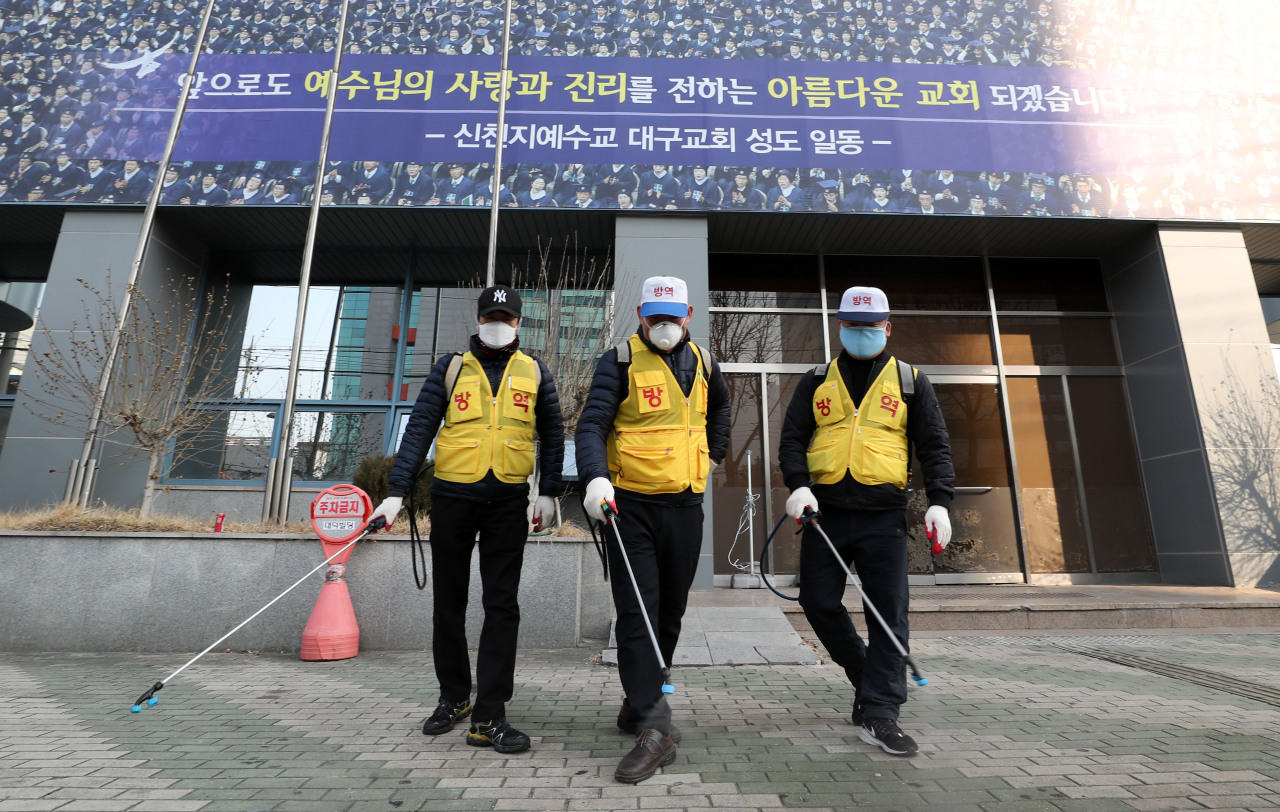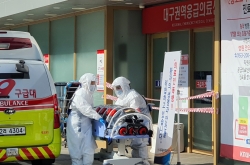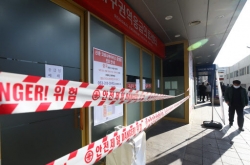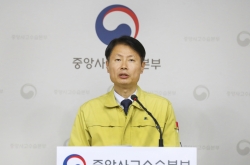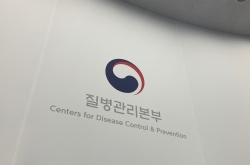South Korea’s fight against the coronavirus outbreak has entered a new phase of local transmission, with Daegu becoming a hot bed of COVID-19 infections with nearly 40 new cases reported in the southern city in just two days.
As of 6 p.m. Thursday, the total number of infected people here stood at 104, with 70 of them in Daegu and nearby North Gyeongsang Province. Most of the cases have been traced to a church in the city that a 61-year-old woman, confirmed as the country’s 31st patient on Tuesday, had attended.
The government reported that a 63-year-old man, who died Wednesday, tested positive for the virus in a post-mortem examination. The exact cause of his death has yet to be identified. He died at Chungdo Daenam Hospital in North Gyeongsang province, where he had been hospitalized for over 20 years, according to the Korean Centers for Disease Control and Prevention.
Vice Health and Welfare Minister Kim Kang-lip said the country is confronting a new situation that requires a different response.
“At this stage, (the government) judged that COVID-19, which has been flowing in from overseas, is spreading locally with a limited scope,” Kim said.
He added that cases where the route of infection is unclear are emerging in Daegu and the capital Seoul.
There are at least 20 cases of coronavirus patients whose transmission path is unknown.
Community transmission refers to a generation of cases with difficulty in grasping the epidemiological link in the community beyond confirmed cases stemming from those who returned from abroad and secondary infections who had contact with people found to have contracted the virus.
Given the situation, the government is adjusting strategies to prevent the virus’ spread to a wider public, the official said, which includes raising the infectious disease alert level to the highest. Korea is currently at the third-highest readiness level in the four-tier system.
Fears ran rampant in the southern city of Daegu and nearby North Gyeongsang Province, where 70 people were confirmed to have contracted the virus. In just 24 hours through Thursday afternoon, the area saw 53 new cases confirmed.
President Moon Jae-in vowed to mobilize all available resources to the virus-stricken Daegu during a phone conversation with Mayor Kwon Young-jin. The central government plans to send medical professionals and facilities to help the city deal with snowballing cases.
Among the new cases, 39 people are linked with the Sincheonji Church of Jesus, a Christian sect to which the 61-year-old woman, who tested positive Tuesday, belongs.
KCDC Director Jung Eun-kyeong said 1,001 church members who attended services with the woman are now in self-isolation at home. But the public health agency is leaning toward the possibility that the woman could have contracted the virus via a secondary infection. She has been considered to be a potential “superspreader.”
In a phone survey conducted by health authorities, 90 church members answered to having symptoms so far, although 396 people could not be reached.
On Thursday, the government started to check those who showed suspicious symptoms for the novel virus regardless of their overseas travel history, in a bid for early detection.
Among Thursday’s newly confirmed patients in Daegu, two are teachers at an art institute and child care center. Their workplaces were shut down and colleagues were told to self-isolate.
In Seoul, a 74-year-old man received a positive result late Wednesday from a local community health center he visited for showing symptoms of pneumonia.
South Korea is now one of the countries that has reported the highest tallies outside mainland China, along with Japan, Singapore and Hong Kong.
By Park Han-na (
hnpark@heraldcorp.com)
